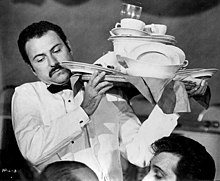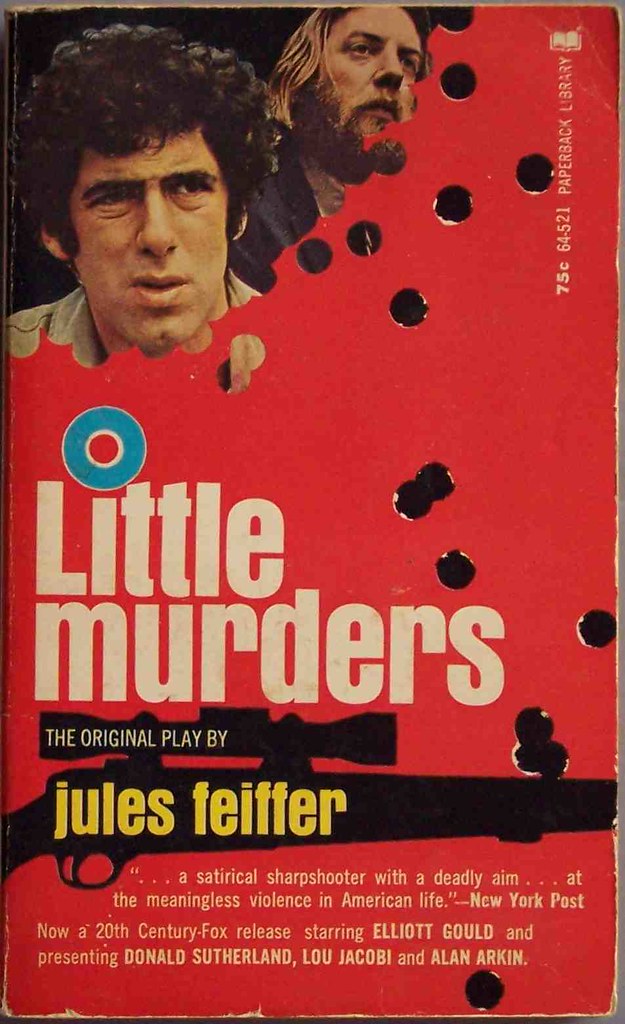
The world of cinema and stage recently bid farewell to a titan of acting, Alan Arkin, who passed away on June 29, 2023, at the age of 89. His family, in a poignant statement to CNN, affirmed his profound impact, declaring, “Our father was a uniquely talented force of nature, both as an artist and a man. A loving husband, father, grand and great grandfather, he was adored and will be deeply missed.” This sentiment reverberates across Hollywood, marking the departure of a performer whose range spanned the spectrum from uproarious comedy to profound drama, leaving an indelible mark on every role he inhabited.
Arkin’s career, which spanned seven decades, was distinguished by an understated brilliance and an unmatched versatility. He navigated diverse genres with an ease that few could emulate, earning him a reputation as a true shapeshifter in the entertainment industry. Whether eliciting laughter with his comedic timing or moving audiences with his dramatic depth, Arkin consistently delivered performances that were both intelligent and heartfelt, establishing a benchmark for craft and dedication. His legacy is not merely in the accolades he accumulated, but in the sheer breadth and quality of his work, which continues to resonate with audiences and inspire fellow artists.
As we reflect on his remarkable life, it becomes clear that Alan Arkin was far more than just an actor; he was a cultural institution. From his groundbreaking work in improvisational theater to his unforgettable turns on Broadway and the silver screen, Arkin carved out a unique space in the hearts of millions. This in-depth look at his early life, stage triumphs, and initial forays into film celebrates the foundational elements of a career that defied easy categorization and redefined the art of performance.

1. **An Oscar-Winning Career and Enduring Legacy** Alan Arkin’s passing at 89 concluded a remarkable journey through the performing arts, distinguished by an Academy Award for Best Supporting Actor and a consistent presence in critical discussions for over half a century. His triumph at the Oscars for his role as the loving yet potty-mouthed grandpa in the 2006 film “Little Miss Sunshine” was a late-career highlight that introduced his singular talent to a new generation of film enthusiasts. This particular role showcased his signature grumpy sarcasm, which swiftly became a beloved calling card.
Beyond this iconic win, Arkin’s artistry was repeatedly acknowledged by the industry’s most prestigious bodies. He earned additional Oscar nominations for his stellar performances in “The Heart is a Lonely Hunter” (1967) and “Argo” (2012), solidifying his standing as an actor of immense depth and critical appeal. His ability to embody characters across various emotional registers, from the deeply moving to the darkly comedic, underscored his profound skill and commitment to his craft.
His extensive filmography is a testament to his “uniquely talented force of nature,” as described by his sons. Arkin was recognized as a “shapeshifter who slipped in and out of genres as easily as one might put on a pair of shoes,” a quality that sustained his career for decades. His impact was not confined to cinema; even in his later years, he continued to garner significant nominations for his work in television, proving his adaptability and enduring relevance in a constantly evolving entertainment landscape.
Read more about: The Warrior’s Last Bow: How Chadwick Boseman at 43 Taught Us to Fight to the Very End

2. **Early Life and Artistic Roots in New York and Los Angeles** Alan Wolf Arkin’s journey began on March 26, 1934, in the vibrant borough of Brooklyn, New York, born to Russian-German Jewish immigrant parents. This early environment, rich with cultural influences, likely fostered the nascent creative impulses that would later define his celebrated career. His family’s background in education, with both parents being schoolteachers and arts enthusiasts, provided fertile ground for his inherent talents to bloom, encouraging his creative pursuits from a young age.
A pivotal change in his upbringing occurred when his family relocated to Los Angeles during his childhood. This move placed him at the heart of the burgeoning entertainment industry, an atmosphere that, whether consciously or subconsciously, must have further shaped his artistic aspirations. The diverse cultural landscape of Los Angeles would have offered different perspectives and opportunities compared to his East Coast beginnings, broadening his worldview and artistic palette.
Before committing fully to acting, Arkin explored higher education, attending various institutions including Los Angeles City College, California State University, Los Angeles, and ultimately Bennington College in Vermont. Although he left Bennington College prematurely, these academic experiences provided him with a structured, albeit brief, foundation in learning. It was during these formative years that Arkin also cultivated a profound love for music, a passion that would briefly take precedence over his acting ambitions and lay the groundwork for a broader artistic expression.

3. **The Tarriers and the Folk Music Scene: A Hit with “The Banana Boat Song”** Before he captivated audiences on stage and screen, Alan Arkin made a significant foray into the world of music. He temporarily left Bennington College to form the music group, The Tarriers, a folk ensemble where he showcased his talents as both a singer and a guitarist. This period allowed him to explore a different avenue of artistic expression, demonstrating his innate musicality and stage presence, even in a different medium than what would make him famous.
Though The Tarriers did not remain together for an extended period, their time in the spotlight was marked by a notable achievement: a hit single with “The Banana Boat Song” in 1957. This success provided Arkin with an early taste of public recognition and the dynamics of performing to a wide audience. It highlighted his versatility even then, proving his capacity to connect with people through various forms of art.
Interestingly, Arkin’s contribution to “The Banana Boat Song” was not just as a performer, but also as a co-writer, sharing credit with the late Harry Belafonte. This detail reveals an early aptitude for creative composition and a deeper involvement in the artistic process beyond just execution. The folk music scene of the 1950s was a vibrant arena, and Arkin’s participation in it underscores his diverse artistic interests and his willingness to explore different creative paths.

4. **Broadway Triumph: “Enter Laughing” and the Tony Award Breakthrough** Alan Arkin’s transition from improvisational theater to the structured world of Broadway was swift and met with immediate, resounding success. His Broadway debut came in 1963 with the play “Enter Laughing,” a performance that not only garnered critical acclaim but also earned him the prestigious Tony Award. This singular achievement marked a significant turning point, cementing his status as a serious theatrical talent capable of commanding the stage.
Winning a Tony Award for his very first Broadway appearance is a rare feat, signaling a profound natural ability and an undeniable stage presence. This recognition immediately set him apart, launching his name into the wider theatrical consciousness and opening doors to further opportunities in both New York and eventually Hollywood. The play itself was a comedy, allowing Arkin to continue refining the comedic timing and character work he had developed at Second City, now on one of the world’s most demanding stages.
The acclaim from “Enter Laughing” underscored Arkin’s capacity to deliver memorable performances within a scripted context, demonstrating that his talents were not confined solely to improvisation. It was a testament to his unique ability to imbue characters with both humor and humanity, an attribute that would define his most celebrated roles. This Broadway triumph was a pivotal moment, affirming his artistic trajectory and foreshadowing the decades of distinguished work that lay ahead.

5. **Directorial Acumen on Stage: “Little Murders” and “The Sunshine Boys”** Beyond his celebrated acting, Alan Arkin also showcased considerable talent as a stage director, further exemplifying his multifaceted artistic capabilities. In 1968, he earned a Drama Desk award for directing the play “Little Murders,” a testament to his keen understanding of storytelling and character development from behind the scenes. This early recognition as a director highlighted his comprehensive grasp of theatrical production.
His directorial work was not limited to “Little Murders,” which he later also directed for the big screen, indicating a seamless ability to translate his vision across different mediums. Arkin also took the helm for the original Broadway version of Neil Simon’s acclaimed play “The Sunshine Boys.” This production proved to be a significant success, running for an impressive “more than 500 performances” and cementing his reputation as a director with a Midas touch.
Taking on a work by a playwright of Neil Simon’s stature and guiding it to such a long and successful run speaks volumes about Arkin’s ability to interpret and execute a script effectively. His work as a director demonstrated an understanding of pacing, ensemble dynamics, and comedic rhythm that mirrored his own strengths as a performer. These directorial achievements underscore that Arkin was truly a Renaissance man, contributing to the arts in a variety of powerful and impactful ways, both in front of and behind the curtain.
6. **First Oscar Nomination: “The Russians Are Coming, the Russians Are Coming” (1966)** Alan Arkin’s formidable talent quickly transitioned from the stage to the silver screen, where he made an immediate impact, earning an Academy Award nomination for his very first starring film role. This remarkable debut came in the 1966 war comedy, “The Russians Are Coming, the Russians Are Coming,” where he portrayed the character of Rozanov. Such an immediate recognition from the Academy is a rare achievement, placing him among a select group of actors who received Oscar nods for their initial leading performances.
The film itself, a satirical take on Cold War paranoia, provided Arkin with a rich canvas to display his comedic prowess and emerging dramatic capabilities. His portrayal was lauded, capturing the nuanced humor and underlying tension of the character, and indicating a natural aptitude for film acting. This nomination wasn’t just a personal triumph; it signaled to the industry that a major new talent had arrived, one capable of delivering performances that were both entertaining and critically compelling.
Further solidifying the impact of this role, Arkin also accepted a Golden Globe Award for his performance in “The Russians Are Coming, The Russians Are Coming,” cementing the widespread acclaim for his cinematic breakthrough. This dual recognition from major awards bodies at the outset of his film career set a high standard for the decades of work that would follow. It was a definitive statement of his potential, promising a career filled with diverse and memorable roles that would continually challenge and delight audiences.

7. **Embodying Vulnerability: The Heart Is a Lonely Hunter (1967)**Following his comedic breakthrough, Alan Arkin swiftly demonstrated his profound dramatic capabilities, earning his second Academy Award nomination for Best Actor in the 1967 film “The Heart Is a Lonely Hunter.” This role marked a significant departure from the satirical humor that first brought him widespread recognition, showcasing his incredible range and ability to inhabit deeply complex characters. His portrayal was lauded for its sensitivity and emotional depth, proving that his talents extended far beyond the realm of comedy.
In this poignant adaptation of Carson McCullers’ novel, Arkin played John Singer, a deaf-mute who becomes a confidant to a diverse group of misfits in a small Southern town. His performance was remarkable for its quiet intensity, conveying a rich inner life and profound empathy without uttering a single word. This challenging role required an actor of immense skill to communicate so much through subtle expressions and physical presence, and Arkin delivered a performance that resonated deeply with critics and audiences alike.
This early dramatic triumph solidified Arkin’s reputation as a versatile actor capable of both eliciting laughter and moving audiences to tears. It was a testament to his meticulous approach to character, his willingness to explore the full spectrum of human emotion, and his innate ability to connect with the core humanity of his roles. “The Heart Is a Lonely Hunter” stands as a powerful example of his early mastery of dramatic performance, setting a high bar for the impactful roles that would follow throughout his career.

8. **Navigating Darkness: The Challenge of “Wait Until Dark” (1967)**In the same pivotal year of 1967, Alan Arkin took on a role that was diametrically opposed to the vulnerable protagonist of “The Heart Is a Lonely Hunter”: the menacing villain Roat in the thriller “Wait Until Dark.” Starring opposite Audrey Hepburn, Arkin delivered a performance that was both chilling and unforgettable, yet it was a role he openly admitted to disliking. This highlights his commitment to his craft, even when the material pushed him beyond his comfort zone.
Arkin found the experience of terrorizing “America’s Sweetheart” to be deeply unpleasant. He candidly expressed his disdain for the role, stating, “I hated it. I just thought she was terrific. I had an enormous amount of regard for her. I didn’t like being cruel to her.” This personal aversion to the character’s malevolence underscores the ethical considerations and emotional toll that some roles can take on an actor, even one as seasoned and versatile as Arkin.
Despite his personal struggles with the character, Arkin’s portrayal was nothing short of brilliant. His chilling menace was palpable, creating a truly terrifying antagonist that elevated the suspense of the film. This ability to deliver a compelling performance even when he fundamentally disagreed with or disliked the character he was playing speaks volumes about his professionalism and the depth of his acting prowess. It was a testament to his ability to fully embody a role, no matter how uncomfortable it made him, for the sake of the story.
9. **Anti-War Icon: Captain Yossarian in “Catch-22” (1970)**By 1970, Alan Arkin had firmly established himself as a leading man, and he took on one of his most iconic and challenging roles as Captain John Yossarian in Mike Nichols’ film adaptation of Joseph Heller’s seminal anti-war novel, “Catch-22.” This role placed Arkin at the center of a darkly comedic and profoundly existential narrative, cementing his status as an actor capable of carrying complex, thought-provoking cinema. His portrayal captured the absurdity and terror of war with a nuanced blend of humor and pathos.
As Yossarian, a U.S. Army Air Force bombardier desperately trying to avoid combat, Arkin embodied the frustration and moral quandaries of a man trapped in a bureaucratic nightmare. The film itself was a significant cultural event, reflecting the anti-establishment sentiments of the era, and Arkin’s performance was crucial to its impact. He navigated the intricate balance between comedy and tragedy, bringing to life a character who was both intensely relatable and deeply flawed.
“Catch-22” showcased Arkin’s unique ability to convey profound human experience within a satirical framework. His performance resonated with audiences who were grappling with the moral complexities of conflict, further solidifying his reputation as an actor who chose roles with substance and meaning. This film stands as a monumental entry in his filmography, demonstrating his capacity to anchor a major motion picture with a performance that was both intelligent and emotionally gripping.

10. **Cult Classic Comedy: “The In-Laws” (1979) and Unpredictable Humor**Alan Arkin continued to display his masterful comedic timing and unique brand of humor in the 1979 cult classic, “The In-Laws,” where he starred opposite Peter Falk. This film became a beloved staple, celebrated for its outlandish plot and the fantastic chemistry between its two lead actors. Arkin’s performance as Sheldon Kornpett, a mild-mannered dentist unwillingly drawn into a world of international espionage, was a highlight, showcasing his ability to blend deadpan delivery with escalating panic.
His comedic genius was also evident in films like “So I Married an Axe Murderer,” where he played a deeply supportive yet hilariously over-the-top police chief. In one memorable scene, Arkin’s character throws his detective against a wall, delivering a speech reminiscent of an action film, only to then earnestly discuss his performance. This “wacky” side of Arkin demonstrated his flexibility in comedic roles, embracing both the understated and the overtly absurd with equal conviction.
Arkin’s versatility allowed him to infuse his comedic characters with layers of unexpected depth, making them not just funny, but genuinely endearing or surprisingly intense. Whether he was subtly sarcastic or wildly exaggerated, he consistently found the truth in his characters, allowing audiences to laugh with them and occasionally be genuinely surprised by them. “The In-Laws” remains a testament to his enduring comedic power and his willingness to embrace unconventional narratives.

11. **Master of Ensemble: “Edward Scissorhands” (1990) and “Glengarry Glen Ross” (1992)**Even as he matured, Alan Arkin continued to be a sought-after presence in critically acclaimed films, often elevating ensemble casts with his distinctive performances. In Tim Burton’s beloved 1990 fantasy “Edward Scissorhands,” Arkin played Bill, the kind and understanding father figure to Johnny Depp’s titular character. His portrayal brought warmth and grounded humanity to the fantastical tale, demonstrating his ability to be a reassuring and relatable presence.
Just two years later, Arkin delivered a powerful and intense performance as George Aaronow, a struggling real estate salesman in the searing drama “Glengarry Glen Ross” (1992). This film, celebrated for its sharp dialogue and strong ensemble, allowed Arkin to showcase his dramatic gravitas alongside a powerhouse cast. His portrayal of a man teetering on the edge of desperation was both subtle and impactful, adding significant weight to the film’s exploration of ambition and failure.
These roles underscore Arkin’s enduring relevance and his knack for selecting projects that allowed him to shine, whether in a supportive or leading capacity. He had a unique ability to command attention with an understated intensity, making every scene he was in more compelling. His work in these films further solidified his reputation as an actor who could seamlessly transition between genres and deliver memorable performances that enhanced the overall quality of the production.

12. **Late-Career Acclaim: “Argo” (2012) and Enduring Oscar Recognition**Decades into his illustrious career, Alan Arkin continued to garner significant critical acclaim, culminating in his third Academy Award nomination for Best Supporting Actor for his role in Ben Affleck’s 2012 Best Picture winner, “Argo.” This nomination, coming a full six years after his Oscar win for “Little Miss Sunshine,” was a powerful testament to his enduring talent and his continued ability to deliver performances that resonated with both critics and audiences.
In “Argo,” Arkin played Lester Siegel, a seasoned Hollywood producer whose sharp wit and world-weary cynicism provided much-needed levity and wisdom amidst the film’s high-stakes geopolitical drama. His scenes were filled with memorable lines and an impeccable delivery that captured the essence of the old Hollywood character. This performance further cemented his legacy as an actor who could inject both humor and gravitas into even the most intense narratives.
His role in “Argo” demonstrated that Arkin remained a vital and compelling force in cinema, capable of contributing significantly to major productions well into his later years. The film’s widespread success and his individual recognition reinforced the industry’s deep respect for his craft. It was a fitting capstone to a career filled with diverse and impactful roles, showcasing his unwavering commitment to excellence and his remarkable ability to connect with new generations of filmgoers.

13. **Television Triumphs and a Lasting Legacy: “The Kominsky Method” and Peer Tributes**In his final years, Alan Arkin found renewed success and widespread acclaim in the world of television, notably starring in the Netflix series “The Kominsky Method.” His comedic turn in the show earned him multiple Emmy, Golden Globe, and Screen Actors Guild awards and nominations, proving his adaptability and continued relevance in a rapidly evolving entertainment landscape. This late-career triumph introduced his genius to an even broader audience, further cementing his iconic status.
Beyond the accolades, Arkin’s profound influence is perhaps best captured by the heartfelt tributes from his peers. His sons, Adam, Matthew, and Anthony, themselves active in the arts, aptly described him as a “uniquely talented force of nature, both as an artist and a man.” Fellow actors like Viola Davis noted, “Our work inspired a generation of actors and reminded us how powerful our art can shift us,” while Patton Oswalt famously tweeted, “Did ANYONE have the range Alan Arkin had? Hilarious, sinister, insane, tragic. No mood he couldn’t live in. RIP.” Michael McKean recalled answering the question ‘serious actor or funny one?’ with ‘Which kind is Alan Arkin?’, silencing critics with the simple truth of his versatility.
Octavia Spencer, deeply moved by Arkin’s compassion, shared how he put “wind in [her] sails,” underscoring his generosity and supportive spirit within the industry. Natasha Lyonne affectionately called him her “Favorite movie dad & all time hero.” These testimonials collectively paint a picture of an artist who not only mastered his craft across decades and genres but also genuinely inspired and touched the lives of those around him. His family’s continued contributions to the arts, including his sons Adam, Matthew, and Anthony, further extend his rich legacy.
As we reflect on the unparalleled career of Alan Arkin, it is clear that his passing marks the end of an extraordinary era, but his influence will undoubtedly continue to resonate. From his groundbreaking work in improvisational comedy and his transformative stage performances to his unforgettable roles across countless films and his celebrated television appearances, Arkin’s artistry was a masterclass in versatility and profound human insight. He was an actor’s actor, a craftsman who approached every role with intelligence, wit, and an undeniable force of nature, leaving behind a body of work that will inspire generations to come. His legacy is not just in the characters he brought to life, but in the spirit of dedication and fearless exploration he embodied, forever enriching the tapestry of cinematic and theatrical history.





